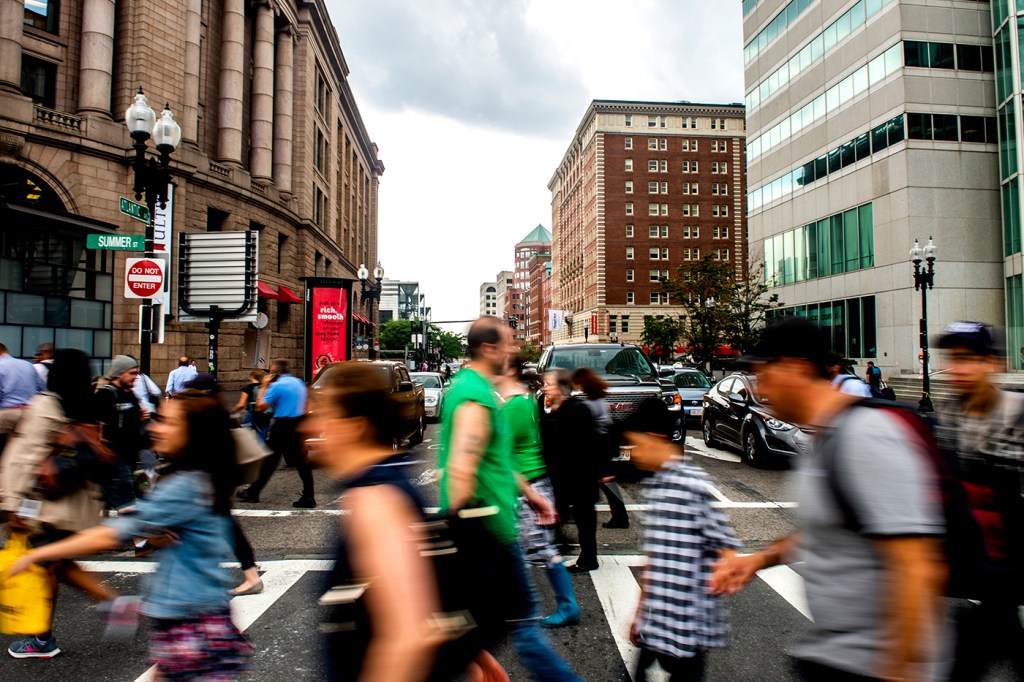Want to understand the impact of the COVID-19 pandemic on Boston? Northeastern researchers have built a database

The COVID-19 pandemic upended daily life for everyone, changing the way we went about our lives in every conceivable way. Sudden disruptions to society were immediately apparent: School closures, business shutdowns, new—and in some cases, unprecedented—public health policies. But other pandemic impacts remain hidden, locked away in datasets and public records not yet meaningfully analyzed.
The determination to uncover that data—and make it widely available—led a group of Northeastern researchers to construct a “data-support system” from multiple information sources in and around the city of Boston that, when combined, paint a portrait of how communities and neighborhoods were impacted by the pandemic, especially those of color.

The comprehensive database includes data from a variety of local sources, including Boston 911 and 311 (the city’s non-emergency line) dispatches, building permits, internet sources such as Yelp and Craigslist, among many other sources.
The data-cleanse-and-aggregation project aims to “captur[e] aspects of housing and land use, crime and disorder, and commercial activity and institutions” to understand how “social, [behavioral], and economic disruptions” varied across Boston neighborhoods, according to a description of the database published in Nature Scientific Data this week.
“We identified every data source that we could get our hands on—from administrative data to social media posts,” says Northeastern professor Dan O’Brien, who leads the Boston Area Research Initiative that oversaw the data project.
O’Brien says the team of researchers combed through the different information sources, cleansing them of any errors or extraneous data, then “scraping” them into a user-friendly system that’s easy to use and publicly available. Throughout the pandemic, the database has served as a public resource for researchers, policymakers, public health officials and practitioners, and educators.
“It’s a great resource for answering questions on the fly,” O’Brien says. “And now that we’re approaching the other side of the pandemic, we can use this database to look at inequitable outcomes, to think about which communities had more or less impact from infections … and also to look at how business activity was impacted, through Yelp reviews, inspections, et cetera.”
O’Brien says public health researchers are just starting to understand the ways the pandemic has exacerbated long-standing health inequities in communities of color. Researchers with the Boston Area Research Initiative organized the data so that they correspond to and describe distinct geographical places and regions—making it easier to identify pandemic shifts in low-income communities.
The end result of the data project, he says, should help provide researchers with a “comprehensive multidimensional view of how different communities experience the pandemic.”
Early on in the pandemic, the public was clamoring for information about the highly infectious and deadly novel coronavirus. Governments all around the U.S. initiated virtually unprecedented infection tracking protocols that resulted in a deluge of information about viral case counts, hospitalizations, and deaths that’s still a feature of daily life in this late phase of the pandemic.
Beyond mere “dashboarding” of COVID-19 information, O’Brien says their database offers a picture of the pandemic on multiple levels of society.
“This [database] goes a step further than that and says, ‘The pandemic was more than just one variable,’” he says. “It was more than just COVID infections; it disrupted everything. We literally shut everything down, which then alters anything that contributes to the operation of a community.”
For media inquiries, please contact media@northeastern.edu






